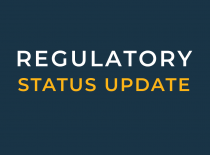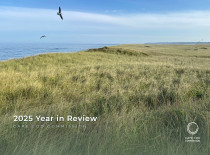All Posts
During a meeting held on January 26, 2026, the Cape Cod Metropolitan Planning Organization (MPO) announced a public review and comment period on proposed changes to roadway functional classification and freight corridor designations for a series of roadways on Cape Cod. More information on the proposed changes may be found at www.capecodcommission.org/mpo.
In 2022, the Cape Cod Commission debuted the High Groundwater Levels Data Viewer, providing a more accessible, up-to-date way to estimate seasonal high groundwater levels anywhere on Cape Cod. Recently refreshed with visual and usability updates, the Viewer continues to serve as an essential resource for engineers, surveyors, septic professionals, and local officials.
Each year, the Cape Cod Commission receives funding through the Massachusetts Executive Office of Housing and Living Communities to provide technical assistance to towns in our region. The District Local Technical Assistance (DLTA) program helps municipalities with sustainable development and encourages partnerships to achieve planning and development goals that align with state and regional priorities.
Over the years, DLTA funds have supported housing and wastewater initiatives, studies of redevelopment options and economic development strategies, and targeted local planning and zoning efforts. Seven projects received 2026 DLTA funds.
The Cape Cod Commission has been awarded $476,800 in federal funding through the U.S. Department of Transportation’s Fiscal Year 2025 Safe Streets and Roads for All (SS4A) grant program to advance roadway safety across Barnstable County.
The grant will support Planning and Demonstration Activities that build on the recently completed Cape Cod Vision Zero Action Plan, with a focus on reducing fatal and serious injury crashes and making Cape Cod’s roadways safer for everyone, including drivers, pedestrians, bicyclists, and transit users.
On Cape Cod, the cost of purchasing or renting a home far exceeds what typical year-round households can afford. Working with Outwith Studio, the Cape Cod Commission has completed an analysis examining incentive-based strategies that communities can use to increase the supply of year-round housing, an issue that continues to affect the region’s workforce, families, and long-term residents.
A status on projects currently under review by the Cape Cod Commission.
The Cape Cod Commission and the town of Eastham have released the draft Eastham Climate Action Plan for a 30-day public comment period. Created with input from many community members, including full- and part-time residents, business owners, local organizations, municipal staff, and other partners, the plan provides a clear framework to guide local climate action through defined goals, strategies, and implementation measure
A review of the Cape Cod Commission's work in 2025.
In October 2025, the Cape Cod Regional Transit Authority (CCRTA) promoted John Kennedy to Administrator, filling the position left by the late Tom Cahir, who served for 16 years. Read more to learn about his new role and approach for leading the region's transit organization.
The Cape Cod Commission is pleased to welcome two new staff members and an AmeriCorps service member to our team. Read more to learn about Planner II Jasmine Olins, Regulatory Planner Ellen Carlson, and AmeriCorps member Ciara Chagnon.










